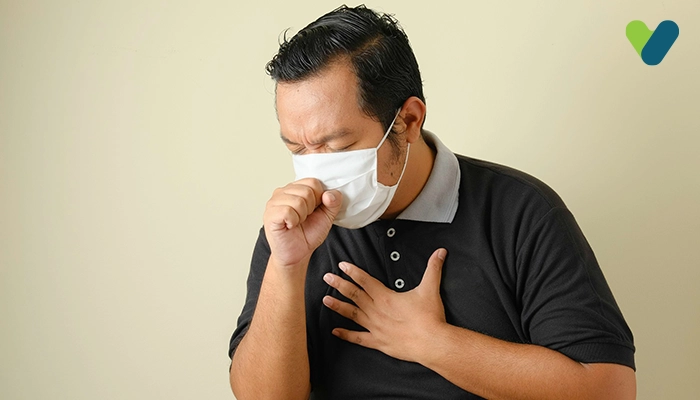Introduction
Neeta was in the hospital expecting her first child. She was past her due date. She was expecting any time. When she had her first baby boy, she was delighted. To her discomfort, her child was not well. The baby boy always had a fear. He had constant diarrhoea and had been vomiting continuously. The boy had sleepless nights. The parents used homemade remedies to treat him. The neighbours intervened in the situation and asked them to consult a doctor. He was diagnosed with pneumonia. The doctors were able to help him out just in time. It could have been avoided if there had been enough awareness about pneumonia.Meaning of Pneumonia
It is a lung infection. It inflames the already present air sacks in one or both the lungs. The air sacs filled with a fluid cause cough. It also causes Phlegm, pus, chills, fever, difficulty in breathing is also a symptom. Bacteria viruses and fungi cause pneumonia. Children below two and people above 65 may have this disease. Generally, people with weak immune systems are attacked. It can be mild to even life-threatening.Top 6 Symptoms of Pneumonia
The pneumonia symptoms may be mild to severe. It depends on the type of germ causing the disease. Signs and symptoms include:- People have chest pain.
- Fatigue is a big problem.
- Nausea, vomiting or diarrhoea may also happen.
- Fever leads to sweating and shaking chills.
- People tend to lose body heat and have low temperatures. (Above 65)
- Cough which produces Phlegm.
6 Common Causes of Pneumonia
- It is determined by the type of bacteria that causes it. The most common are present in the air we breathe. Sometimes the body is not able to fight these germs.
- The most common type of pneumonia is Community-Acquired pneumonia. It may be caused by.
- Bacteria like Streptococcus Pneumonia cause this disease. It can occur on its own after a cold or flu. It may affect one part of the lung.
- Mycoplasma Pneumoniae may also be a reason. It produces milder symptoms. It is not severe enough for bed rest.
- Pneumonia caused by fungi is prevalent. It is found in soil or bird dropping. People with chronic health problems suffer from this.
- Cold causing viruses also cause pneumonia. Viral pneumonia is another pneumonia type that is usually mild.
Aspiration pneumonia arises when one inhales food into their lungs. Aspiration pneumonia is likely if anything disturbs your normal gag reflex. It can be because of a brain injury or immoderate utilisation of narcotics.
Risk Factors for Pneumonia
- Children below two years and people above 65 years are vulnerable.
- Being hospitalised puts you at a greater risk. Being put on a ventilator makes you vulnerable.
- Having a chronic disease makes you vulnerable. Often people who have asthma are in great danger.
- Smoking damages the immune system. It makes you vulnerable to bacteria and viruses that cause pneumonia.
- People have suppressed immune systems are vulnerable to this disease.
Complications of Pneumonia
- Even with pneumonia treatment, sometimes the problem is not resolved. The people who have higher risk may experience this.
- Bacteria that enter the bloodstream often spread to the other organs. It can cause organ failure.
- If the disease is severe, then it may lead to having difficulty in breathing. The oxygen intake is decreased, and it leads to a lot of conditions.
- Pneumonia causes fluid to build up in the narrow space between tissues. If that fluid becomes, infected one must get it drained.
- An abscess occurs due to pus formation. It is usually treated with antibiotics. Sometimes surgery or drainage is required to remove the puss.
Prevention of Pneumonia
There are a lot of ways to prevent pneumonia:- Getting vaccinated is one of the ways to prevent pneumonia. Although it is not very effective, it is one of the solutions. It only contains some variants of pneumonia. The vaccination guidelines have also changed. One needs to get accustomed to the new guidelines. Your vaccination status needs to be reviewed.
- Children should get vaccinated as quickly as possible. Doctors recommend flu shots for children older than six months.
- Washing hands regularly is key to preventing pneumonia. An alcohol-based sanitiser is the safest bet.
- Smoking damages your lungs' to a great extent. The natural defence system is weakened. One becomes more vulnerable.
- Getting enough sleep and exercising is key to having a sound immune system.


